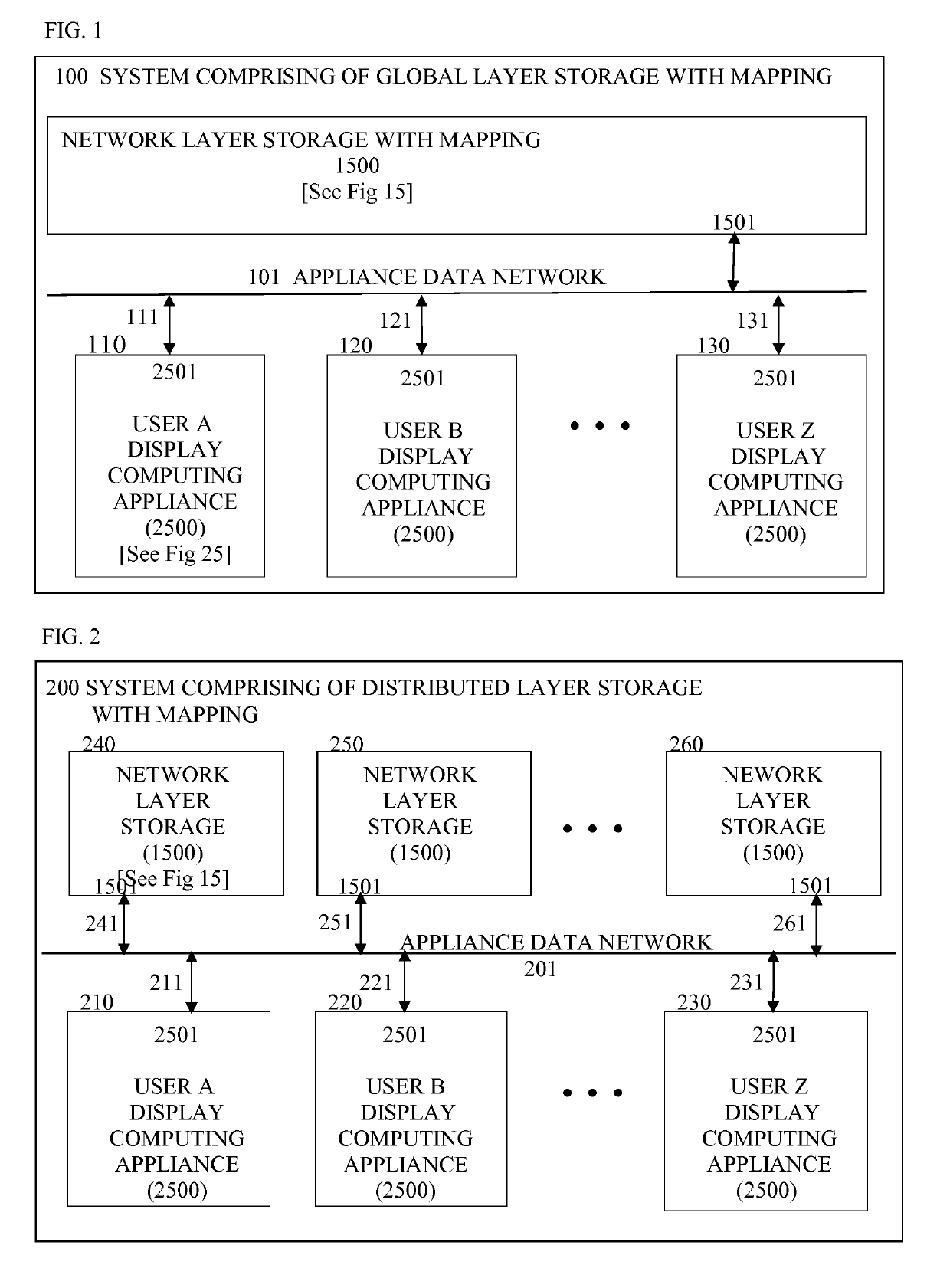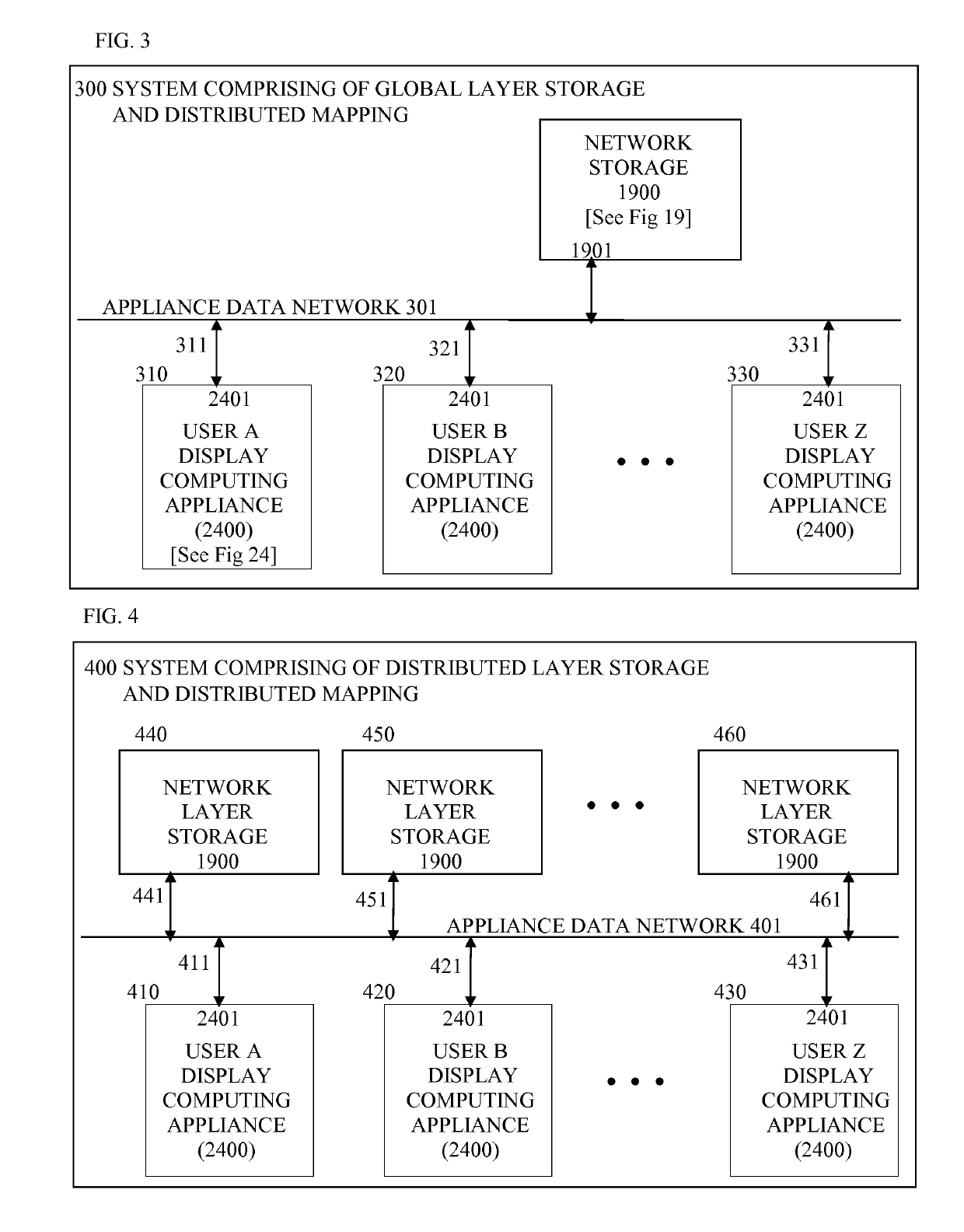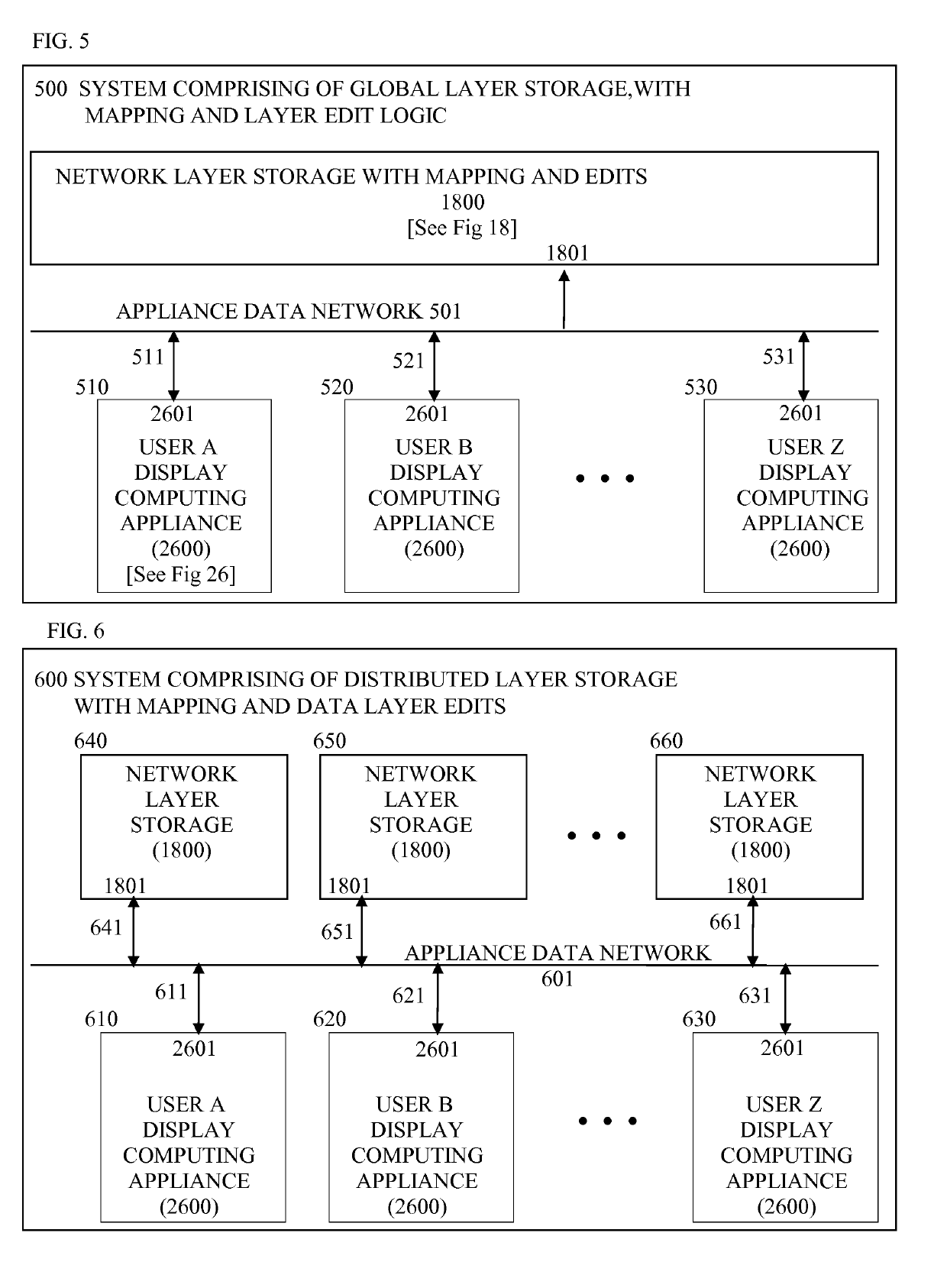Systems and methods providing collaborating among a plurality of users
a plurality of users and systems technology, applied in multi-programming arrangements, instruments, data switching networks, etc., can solve problems such as loss of momentum and confusion, and inefficient and frustrating work methods, so as to speed up the preparation for trial and ease the time required
- Summary
- Abstract
- Description
- Claims
- Application Information
AI Technical Summary
Benefits of technology
Problems solved by technology
Method used
Image
Examples
example 1
ABC in Order
[0397]
EventOperationEvents AppliedView1Insert A after1Abeginning2Insert B after 12AB3Insert C after 23ABC4Insert D after 34ABCD5Hide 45ABC or ABC
example 2
ABC Randomly
[0398]
EventOperationEvents AppliedView1Insert A after1Abeginning2Insert D after 12AD3Insert C after 15A or A4Insert B after 13AC or AC5Hide 24ABC or ABC
example 3
Dangling Events
[0399]
EventSelectedOperationEvents AppliedView1XInsert A after1Abeginning2Insert B after 13XInsert C after 24XInsert D after 35XHide 4
PUM
 Login to View More
Login to View More Abstract
Description
Claims
Application Information
 Login to View More
Login to View More - R&D
- Intellectual Property
- Life Sciences
- Materials
- Tech Scout
- Unparalleled Data Quality
- Higher Quality Content
- 60% Fewer Hallucinations
Browse by: Latest US Patents, China's latest patents, Technical Efficacy Thesaurus, Application Domain, Technology Topic, Popular Technical Reports.
© 2025 PatSnap. All rights reserved.Legal|Privacy policy|Modern Slavery Act Transparency Statement|Sitemap|About US| Contact US: help@patsnap.com



